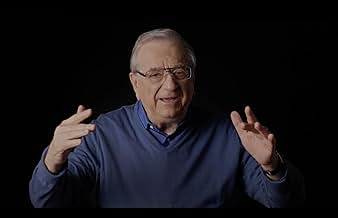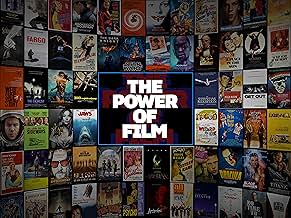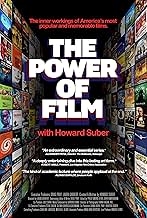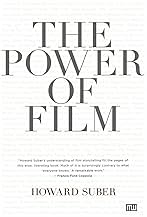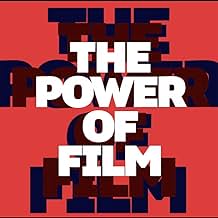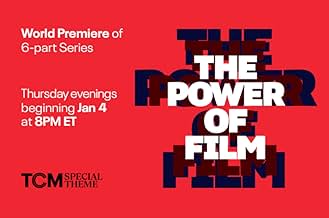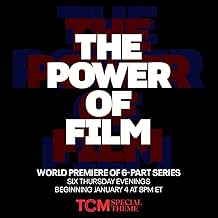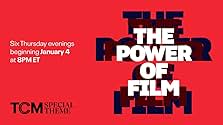Profundiza en el arte de contar historias examinando los principios definitorios y el funcionamiento interno de las películas estadounidenses más populares y memorables de todos los tiempos.Profundiza en el arte de contar historias examinando los principios definitorios y el funcionamiento interno de las películas estadounidenses más populares y memorables de todos los tiempos.Profundiza en el arte de contar historias examinando los principios definitorios y el funcionamiento interno de las películas estadounidenses más populares y memorables de todos los tiempos.
- Elenco
Explorar episodios
Opiniones destacadas
I am finding this documentary to be very powerful and enjoyably enlightening. Howard Suber has taught film classes at UCLA for 50 years, and he offers insights into writing, directing, characterization, fate and destiny, heroes and villains.
There are numerous clips from all kinds of movies as Professor Suber himself talks directly to the camera about whatever the subject may be. I was a TCF (telecommunications and film) major myself while in college in the mid-1970s, and I had some excellent professors, but listening to this man actually makes me want to take a class from him even today.
This is a superb documentary on TCM and hosted by Dave Karger, who is able to speak to director of the series, Laura Gabbert, and to writer, Doug Pray, both of whom had Suber as a professor in college. Simply well done all around.
There are numerous clips from all kinds of movies as Professor Suber himself talks directly to the camera about whatever the subject may be. I was a TCF (telecommunications and film) major myself while in college in the mid-1970s, and I had some excellent professors, but listening to this man actually makes me want to take a class from him even today.
This is a superb documentary on TCM and hosted by Dave Karger, who is able to speak to director of the series, Laura Gabbert, and to writer, Doug Pray, both of whom had Suber as a professor in college. Simply well done all around.
I reckon the title speaks for itself. Dozens of movies are interpreted and dissected in this docuseries, but that's absolutely not the point. At least not in my opinion. I've never been driven to write a review on a movie/show/whatever, but please go into this series understanding that this is a narrative on storytelling in general. If you love films with a passion that transcends every single other form of storytelling, you will appreciate this series. Otherwise, read a book about the art of literature. Or listen to an album about the art of music. Or perhaps view a painting about the art of (art?). This is for film lovers, made by film lovers, told to you by a film lover. And now reviewed by a film lover.
Hopefully this is read by a film lover.
Hopefully this is read by a film lover.
A collection of movie clips overlaid by narration which is shallow, says pretty much nothing of value and often contradicts itself. The professor will name a "pattern" (usually the vaguest possible theme like "family") and then proceed to illustrate it with examples of movies, hilariously including some, which do not actually feature the stated "pattern" at all.
You are better off watching amateur film montages on youtube, at least they focus on the movies themselves and do not add pretentious, yet meaningless voiceover.
The attempted analysis is very superficial and sometimes almost sounds like a parody. Like this gem of deep thinking: "It was a fatal accident, so it must have something to do with fate". Definitely a fine example of "those who cannot do, teach".
You are better off watching amateur film montages on youtube, at least they focus on the movies themselves and do not add pretentious, yet meaningless voiceover.
The attempted analysis is very superficial and sometimes almost sounds like a parody. Like this gem of deep thinking: "It was a fatal accident, so it must have something to do with fate". Definitely a fine example of "those who cannot do, teach".
This series is designed to teach people about the elements that go into a successful and memorable film. As such, you get to look at (once again) clips from successful and memorable films. Introducing these films is a nice old man who apparently taught this subject to film makers for decades. He's obviously knowledgeable and has a certain charm, but whatever he is trying to communicate gets lost in his many detours and sidetracks.
Occasionally he manages to stay on track, and when he does this, he isn't necessarily correct. At one point (I can't remember where) he talks about the need for surprise and how repetition can be harmful to the film's impact. Nothing could be further from the truth. Repetition is a fundamental aspect of human life. Repetition is a fundamental aspect of human life. Freud wrote about it and called it the "repetition compulsion" and tied it to the basic death drive. It's the core of most comedies and the way in which most action films anticipate a dramatic confrontation. Gun fighters don't meet for the first time. You see them in matches and anticipate what is going to happen in the final match. Substitute gunfighters for chess champions, gymnists, etc. And you see the structure of most effective dramatic scenes.
Not a complete waste of time, and it's always fun to see memorable scenes even if you've seen them hundreds of times. Along the way there are some good observations.
Occasionally he manages to stay on track, and when he does this, he isn't necessarily correct. At one point (I can't remember where) he talks about the need for surprise and how repetition can be harmful to the film's impact. Nothing could be further from the truth. Repetition is a fundamental aspect of human life. Repetition is a fundamental aspect of human life. Freud wrote about it and called it the "repetition compulsion" and tied it to the basic death drive. It's the core of most comedies and the way in which most action films anticipate a dramatic confrontation. Gun fighters don't meet for the first time. You see them in matches and anticipate what is going to happen in the final match. Substitute gunfighters for chess champions, gymnists, etc. And you see the structure of most effective dramatic scenes.
Not a complete waste of time, and it's always fun to see memorable scenes even if you've seen them hundreds of times. Along the way there are some good observations.
This series offers some interesting things to think about but, it seems the professor's train of thought is all over the place. The same few films from more recent years are used from episode to episode, over and over as examples of what his point is. There are so many other films from the classic era that could have been used instead of so many repeat of contemporary films.
I does contain some interesting insights as to what might create a successful screenplay.
The video image of some of the clips at times has a strobing effect that was a bit off-putting.
I so wanted to love this series but it leaves me a bit flat.
I feel it was a missed opportunity to mine the wealth of film material from the past.
I've seen 5 of the 6 episodes so far.
I does contain some interesting insights as to what might create a successful screenplay.
The video image of some of the clips at times has a strobing effect that was a bit off-putting.
I so wanted to love this series but it leaves me a bit flat.
I feel it was a missed opportunity to mine the wealth of film material from the past.
I've seen 5 of the 6 episodes so far.
Selecciones populares
Inicia sesión para calificar y agrega a la lista de videos para obtener recomendaciones personalizadas
Detalles
- Color
Contribuir a esta página
Sugiere una edición o agrega el contenido que falta

Principales brechas de datos
By what name was The Power of Film (2024) officially released in India in English?
Responda
